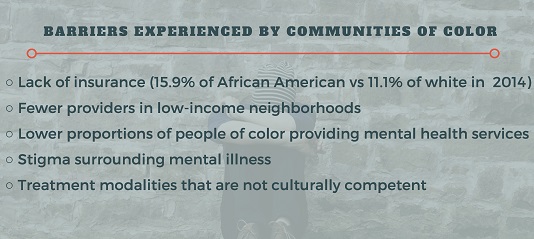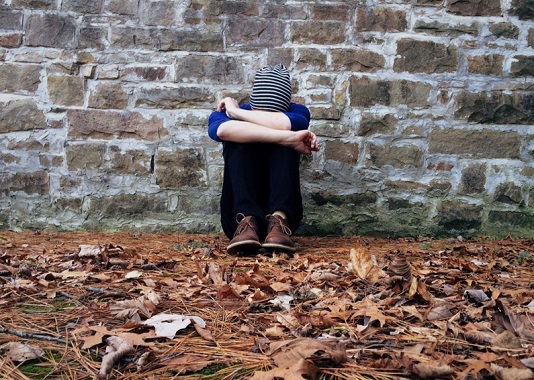There are many reasons why minority populations within the US face heightened barriers to mental health care services. Historical adversity, which includes slavery, sharecropping, and race-based exclusion from health, educational, social and economic resources throughout generations have resulted in socioeconomic disparities experienced by African Americans today. Socioeconomic status, in turn, is directly linked to mental health: people who are impoverished, homeless, incarcerated or have substance abuse problems are at higher risk for poor mental health. Simultaneously, they may lack the resources to address these issues through conventionally established channels.

Despite progress made over the years, racism continues to have an impact on the mental health of Black/African Americans. While negative stereotypes and attitudes of rejection have decreased, but continue to occur with measurable, adverse consequences. Historical and contemporary instances of negative treatment have led to a mistrust of authorities, many of whom are not seen as having the best interests of Black/African Americans in minds.
To offset these areas of inequality, Edgewood is committed to approaching mental health from a culturally competent standpoint. In considering the entire socioeconomic background of our youth and families, we aim to deliver a quality of care that elevates and empowers our community. To learn more about culturally competent care, click here.



